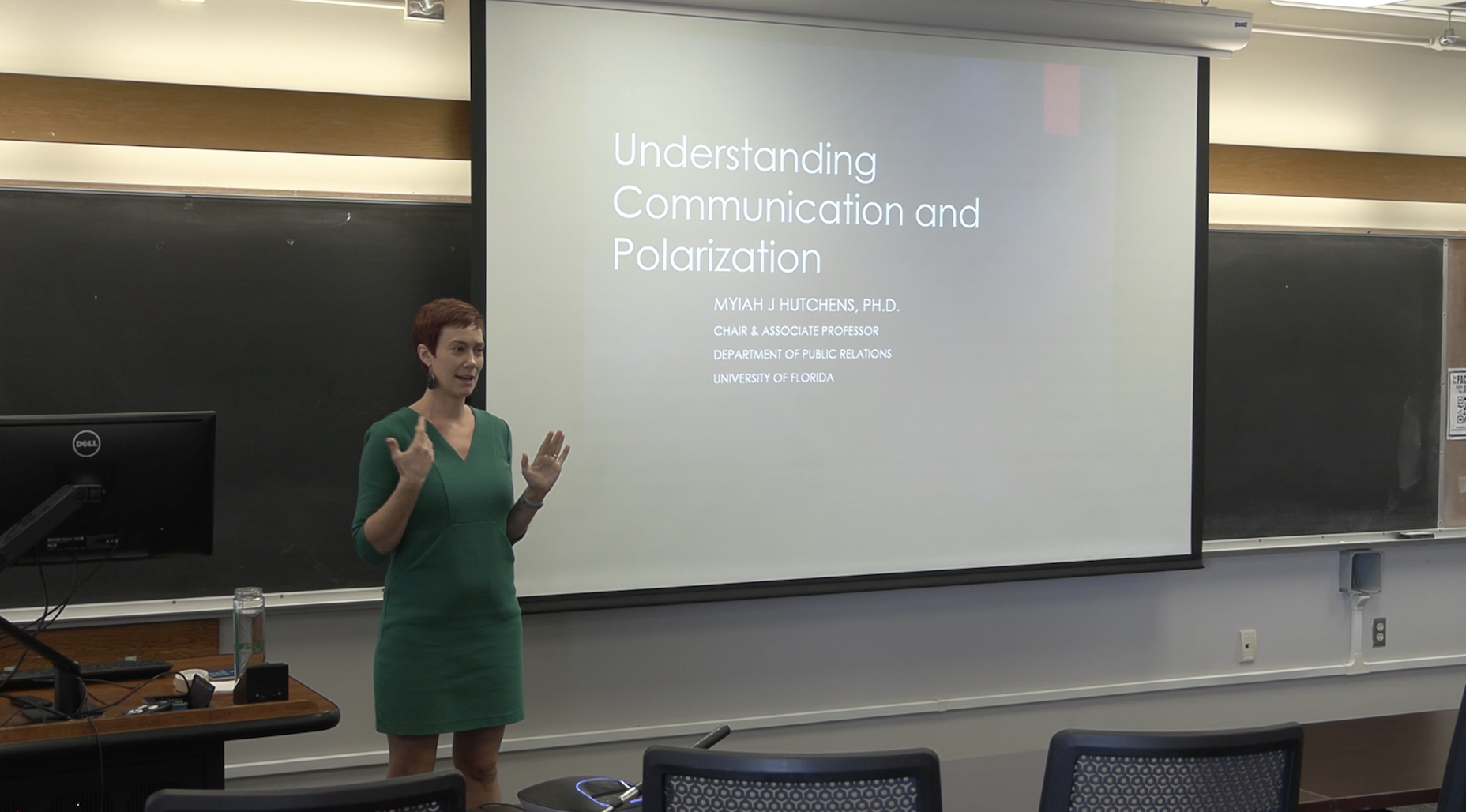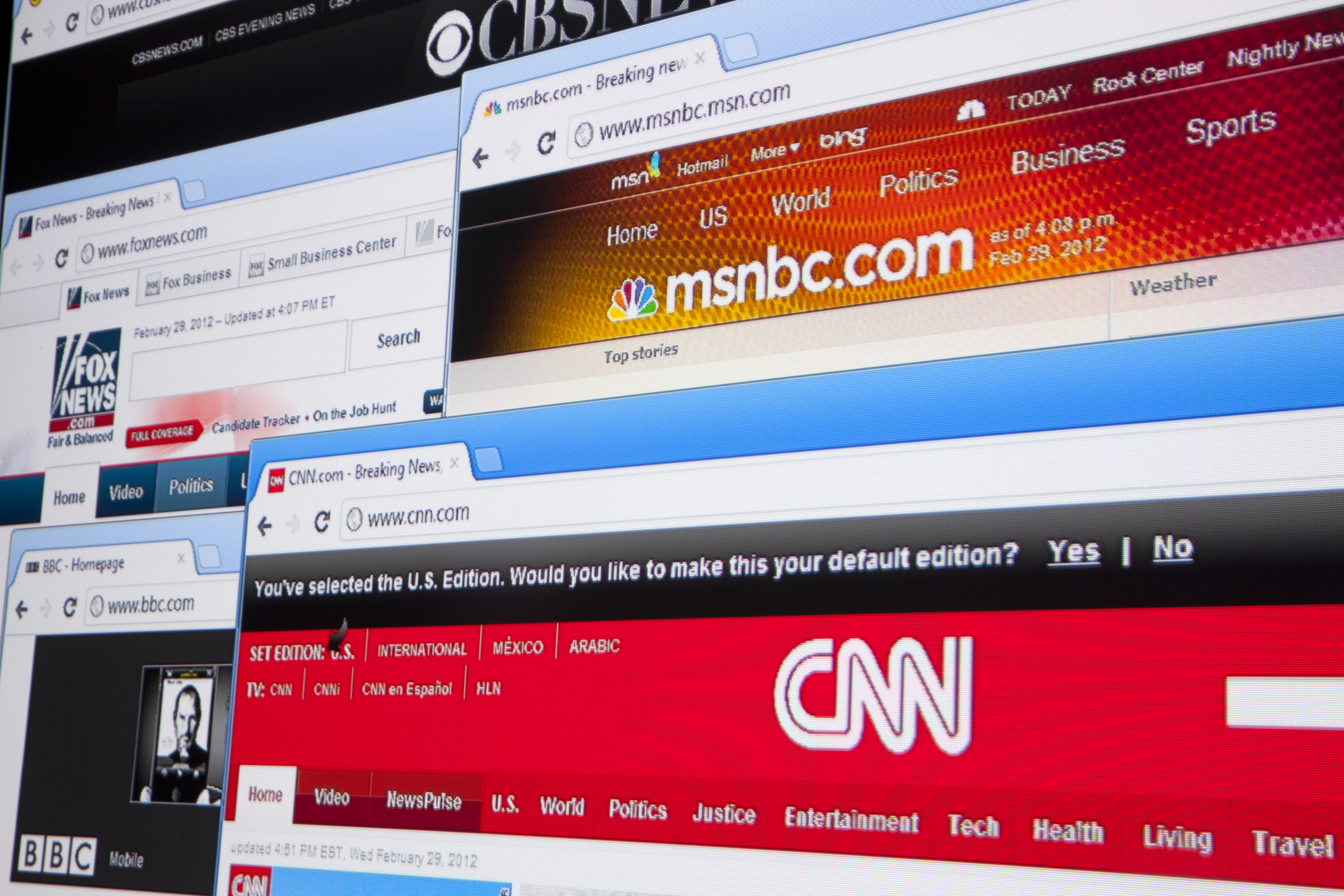
Research Fridays: Understanding Communication and Polarization
Sunday April 23, 2023
Research Fridays features faculty and graduate students from the University of Florida College of Journalism and Communications presenting current research to their colleagues. On April 14, 2023, Public Relations Department Associate Professor and Chair Myiah Hutchens presented “Understanding Communication and Polarization.”
…




